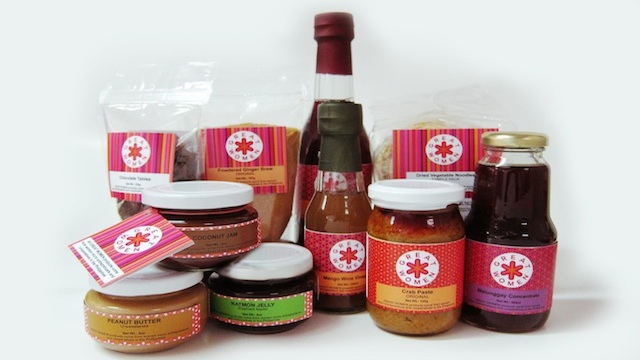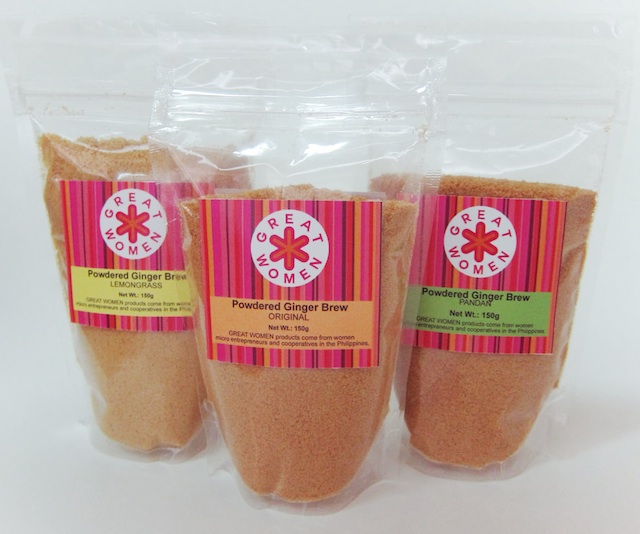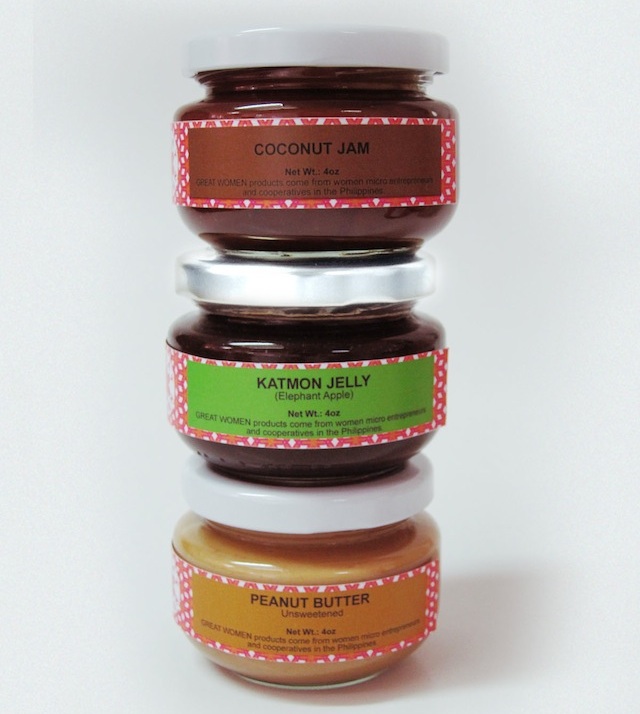SUMMARY
This is AI generated summarization, which may have errors. For context, always refer to the full article.

MANILA, Philippines – Life was peanuts for Ronavelle Amen, but it was never easy.
Her childhood in Iloilo is what she describes as “simple.” Her father was a carpenter and her mother, a housewife. When her father became sick and could no longer take on the hard labor of carpentry, her mother Natividad stepped up to become the breadwinner of the family. She started a home-based business making peanut butter.
“Ginawa lang niya yung recipe. Pinapatikim niya sa mga kapit-bahay namin tapos ina-adjust niya yung recipe hanggang makuha niya yung tamang lasa,” recalls Ronavelle. (She just made up the recipe and then she would have our neighbors sample it. Based on their feedback, she would adjust the recipe until she got the taste right.)
In Natividad’s business model, getting the feedback of her neighbors and relatives served as R&D (research and development) and their word of mouth served as both product endorsement and marketing.
Natividad expanded her product line and started making the different kinds of products from peanut butter like sugar-coated peanuts, salted peanuts and their flagship product, Naty’s Sweetened Peanut Butter.
“Maliit lang yung negosyo namin, yun lang talaga source of income namin pero yun talaga ang bumuhay sa amin.” (It was just a small business and that was our only source of income, but that was what sustained us all those years.)
Their little backyard enterprise would have had all the elements of a success story, but Ronavelle said they were never able to make the business fly because they lacked capital to professionalize the product and widen their distribution network.
“Hinahanapan kasi kami ng label. Yung mga lumang bote ng mga Cheez Whiz lang ang gamit naming packaging pagbenta,” lamented Ronavelle. (Prospective distributors would look for a product label. We were just using old bottles of Cheez Whiz as packaging.)
Neither Natividad nor Ronavelle, who took over the business years later, felt that they had the financial capital or the marketing know-how to grow their business into a sustainable enterprise.
Women as micro-entrepreneurs
Products of women micro-entrepreneurs like Ronavelle and Natividad are usually sold as generic products in communities or in local market stalls. Lacking proper packaging and necessary product certifications, the sales and distribution of their products are limited.
It is one of the stumbling blocks to business development that the Philippine Commission on Women hopes to address with its “GREAT (Gender Responsive Economic Actions for the Transformation of Women) Project.”

This project builds capacities of national and local government units to enable Filipino women micro-entrepreneurs to access information, financial assistance/credit and training. By equipping them with these business tools, women micro-entrepreneurs can create, upgrade and sell their products in distribution centers and at fair trade prices.
It is just what the entrepreneurial spirit of the Filipina needs, said Remedios Rikken, chairperson of the Philippine Commission on Women (PCW).
Rikken said the entrepreneurial spirit is inherent to the Filipina. Usually it is borne out of the need to extend the family’s income, or similar to the case of Ronavelle and Natividad, a life event like the loss of the main breadwinner, compels them to take up the reins of putting food on the table.
“In every office you will find a woman selling everything from bras and panties to longganisa. It is the woman’s way of coping with the economic needs of her family. What more in our communities?” asked Rikken.
Seeing this need as an opportunity for women, the PCW urged LGUs to mainstream gender into their livelihood programs. “And that means jobs, jobs, jobs for women,” said Rikken.
Putting together great women
With technical and funding assistance from the Canadian International Development Agency (CIDA), the PCW and the ECHOsi Foundation (Enabling Communities with Hope and Opportunities Sustainability Initiatives), the development arm of retailer ECHOstore Sustainable Lifestyle launched the Great Women brand.
The Great Women brand is a collection of food products, lifestyle goods and other artisanal products made by women micro-entrepreneurs throughout the country.
The women behind ECHOsi Foundation, Jeannie Javelosa, Chit Juan and Reena Francisco spent most of 2012 going all over the country in search of women-produced community products that could be put under the GREAT Women brand.
Their search brought them to Quezon, Metro Naga in Camarines Sur, Bohol, Iloilo, Leyte, Davao del Sur, and PALMA + PB Alliance in North Cotabato.
ECHOsi, PCW and the LGUs conducted Intensive Design Clinic Series looking for and testing products that could be incorporated into the Great WomenbBrand and offering technical assistance and design expertise.
“We looked at over 2,000 products and ended up with 47,” said Jeannie Javelosa president of ECHOsi Foundation. “We had women coming in from the very far away to meet us in the city. Some travelled for hours, others had to cross via bangka just to meet us. There was so much determination in these women.”
Inheritance
It was during the Intensive Design Clinic in Iloilo where Ronavelle presented her mother’s peanut butter for tasting and review.
Passing the standards of the ECHOsi, Ronavelle will now be able to sell her mother’s peanut butter under the Great Women brand and will be distributed in ECHOstore, in Tesoro’s, Milky Way Restaurant in Makati.

Other products under the Great Women brand include cassava chips in various flavors like malunggay, munggo and sweet and sour made by Emelia Galia from Leyte; crab fat paste made by Teodoro Aquino from Camarines Sur and indigenous inabal weaves made by Vivencia Mamites from Davao del Sur.
“Kung kami lang, hindi talaga namin maaabot ‘to (If it were left up to us, we would never be able to do this),” said Ronavelle, her eyes brimming with tears.
Her only regret is that her mother Natividad who passed away 3 years ago, did not live to see the day that the little recipe she concocted in her kitchen and tested in her backyard would be sold alongside other major brands in Manila.
“Ito lang yun pinamana sa amin ni Mama at hanggang ngayon, ito pa din ang bumubuhay sa ‘min,” said Ronavelle whose life was always peanuts. (This peanut butter recipe is the only inheritance our mother left us, but until now, this is our bread and butter.)
Maybe now, life can be a little easier. – Rappler.com
Add a comment
How does this make you feel?
There are no comments yet. Add your comment to start the conversation.